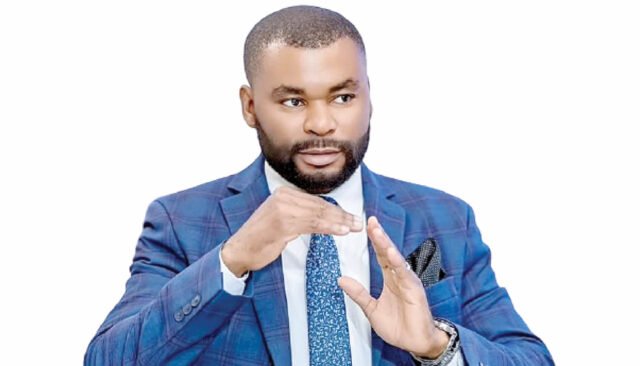In a compelling statement highlighting impact, Edidiong Mbong, the influential CEO of SolarRock Technologies, passionately argues for the transformative potential of artificial intelligence, not as a distant, futuristic marvel, but as a practical tool with local relevance and global impact. For Mbong, AI is not merely a buzzword; it’s a bridge connecting traditional practices in Nigeria’s agriculture, healthcare, and financial sectors with the best standards of innovation recognised worldwide.
As he clarifies, his mission is to “leap to digital transformation and freedom with advanced AI technologies”. This vision is neither abstract nor detached—it is deeply rooted in addressing pressing local challenges, equipped with the foresight to scale solutions globally.
Table of Contents

Why “Local Impact” Matters
Africa, and Nigeria especially, faces unique socio-economic hurdles: entrenched poverty, stretched healthcare systems, low agricultural yields, and limited access to financial services. Solutions imported wholesale from Europe, the US, or China often miss the mark—they lack the granular insights into the habits, languages, and immediate pressures of local communities.
Mbong emphasises that the first step toward meaningful change is understanding these specific realities. Whether it’s smallholder farmers relying on seasonal rains or underinsured patients navigating flimsy clinics, AI-driven solutions must be tailored to fit the community, not the other way around.
This approach means designing tools for voice-based diagnostics in local dialects, building crop forecasting systems attuned to microclimates, or deploying mobile fintech platforms that align with the realities of informal economies.
Impacts of Applying AI in Three Key Sectors
A) Agriculture
By integrating crop diagnostics and yield prediction, AI can empower farmers long before harvest time. Mbong’s team at SolarRock is working on systems that detect early signs of pests, assess soil quality, and send real-time alerts via SMS or WhatsApp. These localised systems are significantly more effective—and potentially revenue-boosting—than generic, global platforms.
B) Healthcare
The crisis in healthcare is real: limited specialists, outdated infrastructure, and rural populations struggling for care. Mbong supports using AI for remote diagnostics and patient triage—for example, low-cost image scanners that can assist in early detection of illnesses like tuberculosis or malaria. Simple, offline-capable AI tools could slash waiting times and ensure more Nigerians receive timely medical advice.
C) Fintech
Nigeria’s informal economy operates on cash and trust-based systems. Mbong envisions fintech powered by AI-driven credit-scoring from voices, social connections, and mobile patterns. This inclusive model invites the previously unbanked into financial systems, enabling microloans, agrifinancing, or insurance services, all while reducing fraud risks.
Bridging Local and Global: The “Global Excellence” Part
It’s not enough for an AI solution to work locally—it must scale. That’s where global excellence becomes indispensable. Mbong insists that adherence to international standards, robust data ethics, and transparent algorithms aren’t optional—they are the pillars enabling African-built solutions to be accepted—or even exported—to larger markets in Europe, Asia, or the Americas.
He points out that by investing in rigorous quality assurance and global best practices, Nigerian startups increase their credibility with investors and partners. In other words, making Africa’s AI resilient, trustworthy, and globally competitive isn’t just lofty—it’s essential for cross-border collaboration.
Challenges—and the Upside
Building AI ecosystems in regions with infrastructure deficits, unreliable electricity, and low digital literacy is undeniably tough. Mbong acknowledges these structural bounds. However, he’s also optimistic: many of these issues can be offset by off-grid solar power (an area of SolarRock’s innovation), user-centric design, and partnerships aimed at future-proofing necessary resources.
He believes that with public–private collaboration, AI-powered solutions, even in their early stages, can catalyse broader development, spurring improved connectivity, accelerating infrastructure investment, and encouraging wide-scale adoption.
How SolarRock Is Stepping Up
At the forefront of putting theory into action, SolarRock Technologies—which Mbong heads—specialises in off-grid renewable energy and integrated AI platforms. While not all their work is public, early pilots include:
- Smart solar-powered crop sensors
- Portable AI diagnostic tools for health outreach
- Voice-based fintech on solar-powered kiosks
These deployments reflect a holistic strategy: renewable infrastructure + mission-driven AI platforms. Although we’re still witnessing early-stage impact, Mbong hints that initial field tests are promising, with several farmers and clinic users reporting smoother workflows.
Building the Human Capital Pipeline
Technology is nothing without people. Thus, Mbong advocates for substantial investment in local skills training, cross-sector mentorship, and international collaboration. He calls for:
- AI workshops for developers, agronomists, and healthcare workers
- Internships with global AI firms
- Research partnerships with universities worldwide
Beyond that, Mbong believes in ethical frameworks and public trust. “African communities should set expectations for AI,” he says—not just technology providers or policymakers. By engaging the public in discourse, he hopes to promote user trust and democratic oversight.

A Call for Policy and Investment
Mbong issues an appeal to both governments and investors:
- For policymakers, the goal is to support AI R&D via subsidies, public–private partnerships, and regulatory clarity. He notes that Nigeria’s regulatory environment is evolving, but needs to speed up to capture AI opportunities.
- For investors, Africa is no longer just an emerging-market risk—it’s a frontier for high-impact, scalable AI enterprises that blend returns with social good.
If aligned, he contends that these AI investments could pay off rapidly through improved food security, public health, and economic inclusion, ultimately strengthening the region’s position in the global marketplace.
Voices From the Ground
In a press release shared by Punch Media, Mbong reiterated: “I believe that Nigerian founders and business leaders can maximise the potential of AI by building locally relevant solutions that meet global [standards].”
On LinkedIn, he added: “I’m on a mission to help businesses and communities leap to digital transformation and freedom with advanced AI technologies.”
These statements echo a broader truth: Africa doesn’t have to choose between solving local problems and competing globally—it can—and should—do both.
The Road Ahead: What to Watch For
Mbong’s vision sets the stage for several trends to monitor:
| Initiative | What to Watch |
|---|---|
| Pilot outcomes | Look for field-data on crop yields, patient diagnosis accuracy, loan disbursement rates |
| Partnership launches | New collaborations between SolarRock and universities or gov’t agencies |
| Policy updates | Regulatory frameworks that address data sovereignty, AI governance |
| Talent programs | Bootcamps, fellowships, and exchanges backed by Mbong or SolarRock |

Why It Matters
- For Nigeria: AI could significantly uplift rural livelihoods, reduce healthcare disparities, and bring millions into the formal economy.
- For Africa: It challenges prevailing narratives—Africa is often seen as a buyer of tech, not a creator. Mbong’s advocacy puts Africans in the driver’s seat.
- For the world: Localised AI solutions offer fresh perspectives—innovations from Africa may inform global best practices in low-bandwidth, resource-constrained contexts.
Final Takeaway
Edidiong Mbong’s call to harness AI for local impact, global excellence isn’t just aspirational—it’s actionable. By rooting AI in community realities, coupling it with global standards, investing in infrastructure and people, and advocating smart policy, he’s laying down a roadmap for meaningful transformation.
If his vision succeeds, Nigeria—and perhaps Africa at large—could leapfrog entrenched development traps. For Mbong, it’s simple: local relevance creates authentic impact; global excellence multiplies that impact—together, they drive sustainable transformation.
Join Our Social Media Channels:
WhatsApp: NaijaEyes
Facebook: NaijaEyes
Twitter: NaijaEyes
Instagram: NaijaEyes
TikTok: NaijaEyes








































